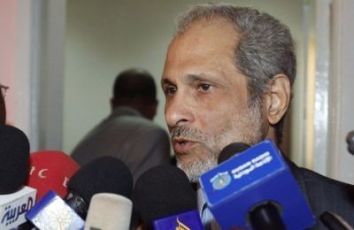Attabani says ready to bring Sudan’s opposition to constitutional conference
October 31, 2017 (KHARTOUM) – The leader of the alliance Future Forces of Change (FFC) Ghazi Salah al-Din Attabani said ready to take part in any effort aiming to bring the opposition groups to join the government-led national constitutional conference.

Asked about whether he would reach out the political and armed opposition groups and convince it to join the constitutional process, the political leader said he is ready
to do so but no nobody asked him.
“If we are asked to move on this subject, we will move efficiently, with a serious intention and we are confident of success as we did in Addis Ababa in September 2014 when we signed the political framework agreement for dialogue and negotiation with the armed movements in less than one day of negotiations,” he said in an interview with the Sudan Tribune on Tuesday.
“So far, I am not very optimistic about the results, but I have learnt from experience that changes in negotiating positions sometimes take place like a seismic event without concrete introductions, and that is the ultimate fate of every problem it will inevitably be solved, but the question is how and when,” he stressed.
Following the signing of Paris Declaration by the Sudan Revolutionary Front (SRF) and the National Umma Party in August 20144, Attabani, as representative of the national dialogue mechanism met with the two groups and signed with them a political agreement paving the way for the two-track process mediated by the (AUHIP).
In a related development, the FFC leader disclosed that he proposed to the government and some opposition parties to work towards reducing the number of political parties by encouraging alliance and merger of the political forces.
He said this would contribute to creating a healthy environment for peace and democratic practices.
According to the Sudanese government, more than 90political parties and over 30 armed groups mainly from Darfur region participated in the National Dialogue Conference. However, the main political and armed opposition forces boycotted the political process.
(ST)
